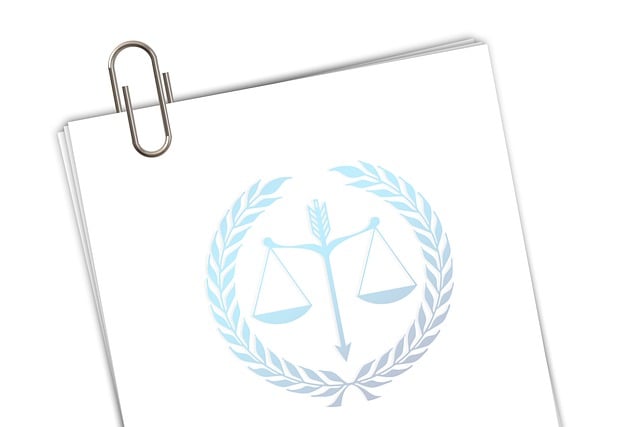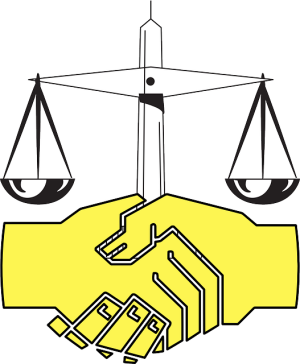Legalised Translation Services UK are crucial for businesses expanding internationally, ensuring that documents intended for legal entities, government departments, and regulatory bodies across different jurisdictions are accepted and enforceable. These services, provided by sworn-in authorised translators, facilitate accurate and legally compliant translations in contracts, patent applications, legal cases, and compliance documentation. They align the translated content with the original text's intent and context, preserving document integrity. By leveraging these expert services, UK businesses can effectively navigate international law, mitigate language barriers, and foster successful cross-border transactions and partnerships. This is essential for any company aiming to operate within the global marketplace, as it ensures that all translated materials meet legal standards and are accepted in various countries' legal systems. The UK's Legalised Translation Services stand out with their precision, compliance with legal standards, advanced translation management systems, secure data handling practices, and commitment to maintaining high-quality standards, which are vital for businesses seeking to engage in international trade while adhering to GDPR and UK legal requirements. Case studies highlight the success of companies that have utilised these services to expand their operations across European and other international markets, underscoring the strategic advantage and indispensable nature of professional Legalised Translation Services UK in the global business landscape.
In today’s globalized business landscape, communication transcends borders, necessitating precise and legally compliant translation services. Legalised Translation Services UK stand at the forefront of this niche, offering indispensable support for international transactions, legal documents, and multilingual negotiations. This article delves into their critical role in facilitating seamless cross-cultural communications, outlines key considerations for selecting reputable providers within the UK’s legal framework, and showcases real-world success stories that underscore their transformative impact on businesses operating internationally.
- Understanding the Importance of Legalised Translation Services in a Global Market
- The Role of Legalised Translation Services in Facilitating International Business Communications
- Key Factors to Consider When Selecting Legalised Translation Providers in the UK
- Navigating the Legal Framework: What Makes Translations 'Legalised' in the UK?
- Case Studies: How Legalised Translation Services Have Successfully Bridged Language Barriers for Businesses in the UK
Understanding the Importance of Legalised Translation Services in a Global Market

In today’s global marketplace, businesses are increasingly operating on an international scale. This expansion necessitates a robust communication strategy that transcends linguistic barriers. Legalised translation services in the UK play a pivotal role in this context, offering more than just language conversion; they ensure accuracy and legal compliance. Unlike general translations, legalised translations are certified by authorised translators who have been sworn in before a relevant authority. This certification is crucial for documents to be accepted by legal entities, government departments, and regulatory bodies across different jurisdictions. In the UK, where adherence to legal standards is paramount, legalised translation services provide businesses with the assurance that their translated documents are not only linguistically precise but also legally sound. This level of verification and accuracy is indispensable for contracts, patent applications, legal proceedings, and compliance documentation, thereby facilitating seamless international transactions and relationships.
The importance of utilising professional legalised translation services in the UK cannot be overstated, particularly when navigating complex regulatory environments. These services ensure that business documents are translated accurately, reflecting the original intent and context of the source material. This meticulous approach to translation is essential for maintaining the integrity and enforceability of agreements and legal texts. Moreover, legalised translations help businesses avoid potential legal pitfalls associated with miscommunication or document rejection due to incorrect translations. In an era where global commerce is the norm, businesses must prioritise legalised translation services to ensure their international endeavours are underpinned by clear, precise, and legally compliant communication.
The Role of Legalised Translation Services in Facilitating International Business Communications

In today’s global marketplace, where international business communications are the norm rather than the exception, the role of legalised translation services has become increasingly pivotal. Companies operating across borders must navigate a complex array of languages and legal requirements to ensure their messages are not only accurately translated but also compliant with the laws governing documentation in different jurisdictions. Legalised Translation Services UK stand out as essential tools for businesses aiming to conduct seamless cross-border transactions. These services go beyond mere linguistic translation, providing certified translations that meet the legal standards required by various countries. This certification verifies the accuracy and authenticity of translations, ensuring they hold up in international courts or can be used to formalise contracts, patents, and legal documents. By facilitating clear and legally binding communication, these services enable businesses to operate with confidence across different legal systems, thereby reducing the risk of miscommunication and legal complications that could arise from language barriers. In the UK, where a myriad of businesses engage with international partners, the demand for such professional translation services is high, reflecting the critical nature of accurate communication in fostering trust and maintaining compliance across international borders. For any company looking to expand its reach or establish partnerships globally, utilising Legalised Translation Services UK is not just a strategic move—it’s an indispensable component of effective international business operations.
Key Factors to Consider When Selecting Legalised Translation Providers in the UK

When a business operates across international borders, effective communication is paramount. In such cases, opting for professional legalised translation services in the UK becomes not just a strategic advantage but a necessity to navigate the multilingual landscape accurately and compliantly. Selecting the right service provider involves careful consideration of several key factors. Firstly, it’s crucial to evaluate the qualifications and accreditation of the translators. Legalised translation requires not only linguistic prowess but also an understanding of legal terminology and context. Reputable providers in the UK will employ native speakers with professional certifications, such as those offered by the Institute of Translation and Interpreting (ITI) or the Chartered Institute of Linguists (CIOL). Additionally, these experts should be proficient in the specific legal systems and requirements of both the source and target countries to ensure the translation is both legally accurate and culturally appropriate.
Furthermore, businesses must consider the technical capabilities of the translation service. This includes the use of advanced translation management systems (TMS) that facilitate consistent terminology across all translations and streamline workflow processes. The provider should also offer secure data handling practices to protect sensitive business information. With the UK’s stringent legal standards, compliance with data protection laws like GDPR is non-negotiable. Additionally, the ability to handle various file formats and provide rapid turnaround times without compromising on quality are indicative of a reliable and efficient service. By prioritising these factors, businesses can ensure that their translated documents are legally sound, accurately conveyed, and handled with the utmost confidentiality, thereby upholding their professional reputation in international markets. Legalised translation services UK offerings are integral to this process, bridging language barriers while ensuring legal and cultural accuracy.
Navigating the Legal Framework: What Makes Translations 'Legalised' in the UK?

In the United Kingdom, businesses operating in a multilingual environment must adhere to stringent legal requirements when it comes to translations. ‘Legalised translation services UK’ are a specialized subset of translation services that cater specifically to the legal domain. These services ensure that documents are not only accurately translated from one language to another but also bear the necessary certification and legal validation required by UK law. The legal framework for translations in the UK mandates that certain official documents, such as contracts, certificates, and legal correspondence, must be accompanied by a precise translation that carries the same legal weight as the original. This is where ‘legalised translation services UK’ become indispensable. They provide certified translations stamped and approved by professional translators who are native speakers of both the source and target languages. Additionally, these translations undergo a second level of verification by legal experts or accredited bodies, which includes the Attestation Stamp from the translation company and, if necessary, an Apostille from the Foreign, Commonwealth & Development Office (FCDO) for international use. This meticulous process ensures that businesses can navigate cross-border transactions with confidence, knowing their translated documents are compliant with UK regulations and internationally recognized standards. The rigorous standardization of ‘legalised translation services UK’ is a testament to the country’s commitment to upholding legal integrity across all official communications, making them an invaluable resource for any business dealing with international clients or operations.
Case Studies: How Legalised Translation Services Have Successfully Bridged Language Barriers for Businesses in the UK

businesses operating within the UK’s diverse linguistic landscape face the challenge of effectively communicating with a wide array of international clients and stakeholders. Legalised translation services have emerged as a pivotal tool for overcoming language barriers, enabling companies to expand their reach and navigate global markets with confidence. A notable case study involves a multinational corporation seeking to streamline its operations across European countries. The company required documentation such as contracts and financial statements to be accurately translated into multiple languages, including Polish and French, while ensuring compliance with UK legal standards. By leveraging professional legalised translation services in the UK, the corporation successfully facilitated clear and precise communication, which was instrumental in their cross-border merger and acquisition processes. Another instance is a burgeoning tech start-up that aimed to launch a groundbreaking app globally. The start-up’s legal documents, user interface, and marketing materials were meticulously translated into German and Spanish by legalised translation experts who specialise in the tech industry. This ensured that the start-up could protect its intellectual property rights and effectively market its product to non-English speaking audiences, thereby paving the way for a successful international rollout. These examples underscore the significance of professional legalised translation services in the UK’s business context, highlighting their role as a critical component in global trade and communication.
In conclusion, the utilization of professional legalised translation services is indispensable for businesses operating within the UK’s diverse and international market. These services not only ensure accurate and legally compliant communication across borders but also uphold a company’s integrity and operational efficiency. By adhering to the stringent standards set forth in the UK, legalised translation providers offer peace of mind, enabling businesses to navigate the complexities of global trade with confidence. The case studies presented underscore the tangible benefits these services deliver, from safeguarding legal documents to facilitating seamless negotiations and partnerships. For companies looking to expand their reach or engage with stakeholders in a multilingual environment, investing in reputable legalised translation services in the UK is not just a strategic move—it’s a necessity for success on the global stage.
